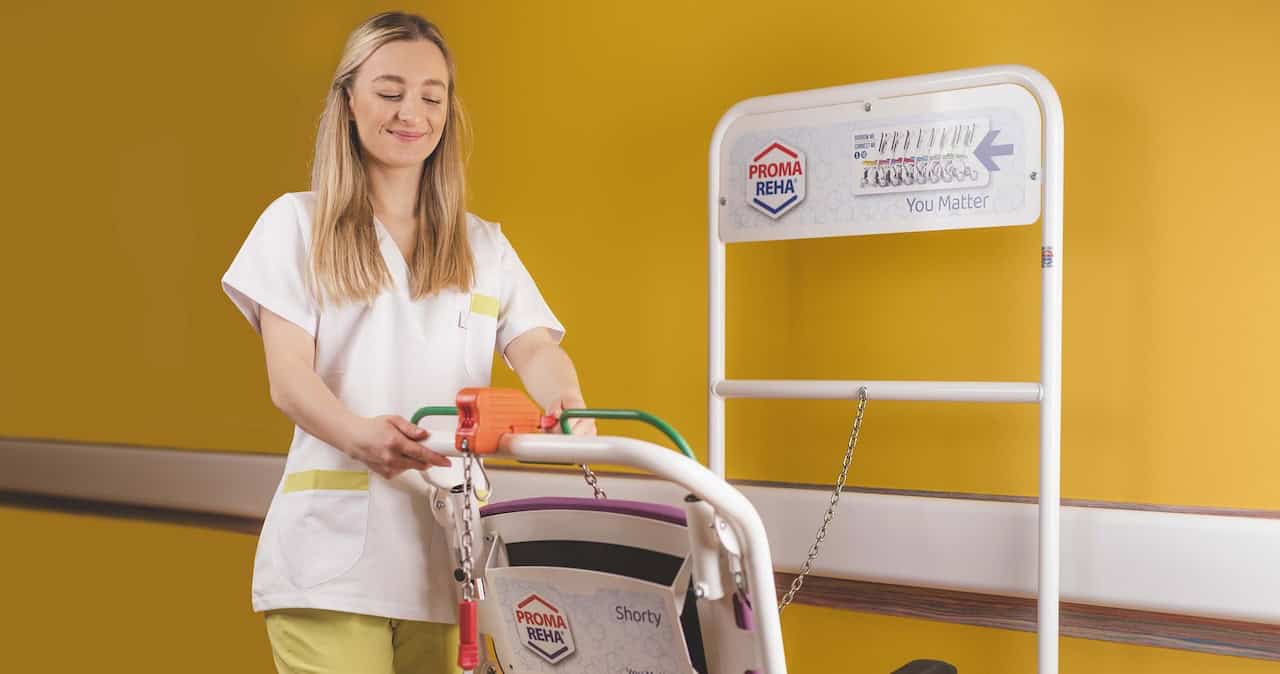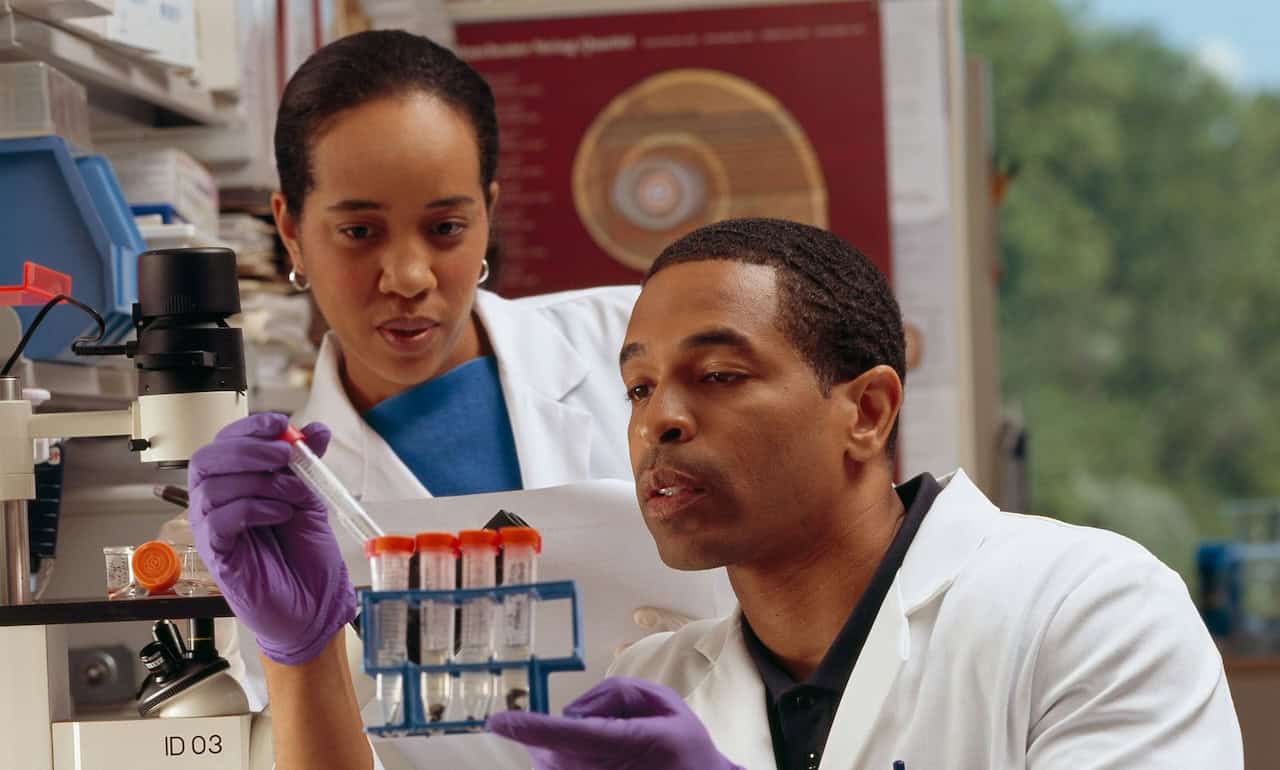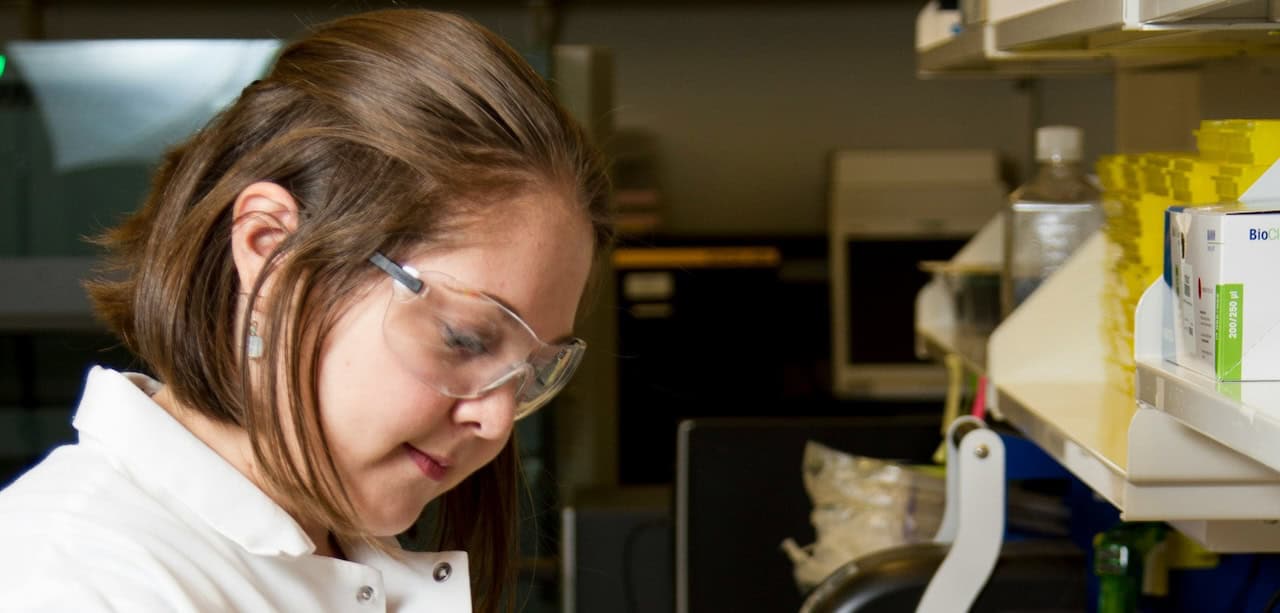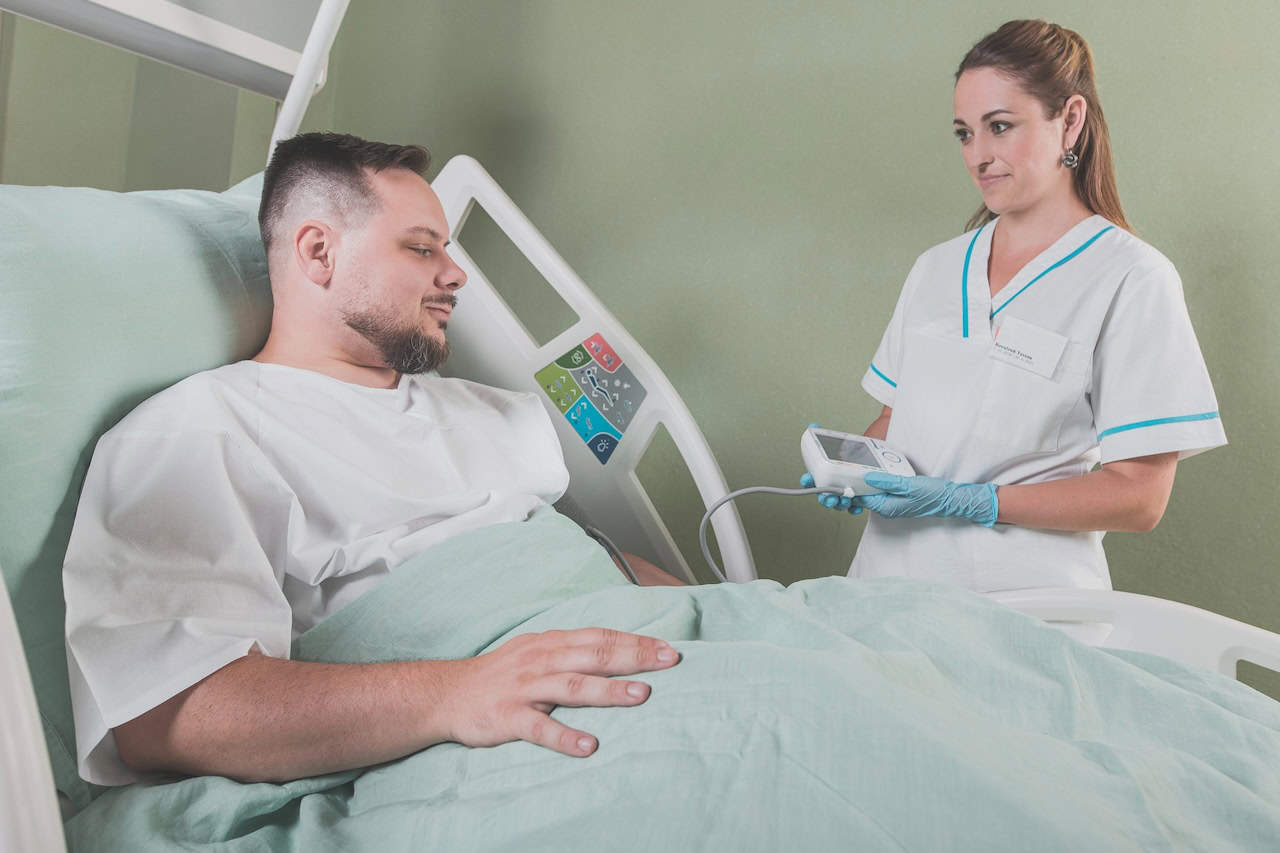How Can A Nurse Become A Medical Doctor?

Table of Contents
- Can a Registered Nurse Become a Doctor?
- Why Might a Nurse Want to Become a MD?
- Should You Study Medicine Abroad After Nursing?
- How Long Does it Take to Go From RN to MD?
- How to Become a Doctor After Studying Nursing?
- How to Become a Doctor After Being a Registered Nurse?
- Can You Transfer Into Medicine While Studying Nursing?
Can a Registered Nurse Become a Doctor
A registered nurse can absolutely become a doctor. In fact, there are several pathways for a nurse who wants to transition into medicine.
The two most common routes for a Nurse to become a Doctor are:
If graduate entry isn’t an option, it’s still possible to take the traditional undergraduate medical route. However, this may feel like a repeat of prior studies. For nurses, choosing a graduate entry programme can streamline the transition, helping you reach your goal faster and with a focused approach.
Studying Medicine After Nursing in the UK vs. Europe and North America
For nurses aspiring to become doctors, the pathway options and experiences can vary between the UK, Europe, and North America. In the UK, nurses can apply to graduate entry medicine (GEM) programmes, which are competitive and typically last four years for graduates with a healthcare background. Admission to these programmes is highly competitive, with limited spots due to high demand, leading some applicants to consider studying abroad.
UK vs. Europe
In Europe, countries like Bulgaria, Greece, Serbia, and Georgia offer internationally-recognised medical programmes. These often more accessible to international students, including nurses transitioning to medicine. Specifically, these programmes are typically taught in English and may also offer four-year accelerated options, particularly for healthcare graduates. The application process tends to be less competitive than in the UK, and students benefit from a lower cost of living. Additionally, studying in Europe allows students to experience diverse cultures and environments while pursuing your goals.
UK vs. North America
In North America, especially Caribbean medical universities, schools like New Anglia University in Anguilla offer globally recognised programmes designed for international students. Caribbean universities are known for their more relaxed admissions criteria and offer the opportunity to study in a scenic, paradise-like setting. Tuition fees may vary, but the cost of living in the Caribbean is often lower than in the UK or North America, making it a practical choice for many students. Countries like Anguilla, Antigua, Barbados, St. Vincent and the Grenadines, and Saint Lucia are in demand with international students.
Choosing to study abroad can be a strategic advantage, providing a less competitive entry path while still obtaining a globally-recognised medical degree, allowing nurses to return to the UK or practice worldwide.

Why Might a Nurse Want to Become a MD?
There are two main reasons why a nurse might choose to transition into becoming a medical doctor. This decision can stem from practical experience in the field or from viewing nursing as a stepping stone to medicine due to limited placements in medical universities. To put this in perspective, as of recent data, there are approximately 28 million nurses worldwide compared to around 13 million doctors. This disparity highlights the greater accessibility of nursing programs, which often have lower entry barriers and shorter training periods compared to medical schools. These structural differences make nursing a more readily accessible profession in many countries, opening a path for healthcare experience that some might later build on to pursue a medical degree.
Let’s explore each reason, along with their pros and cons, and provide a clear outline of the pathways available to successfully pursue a transition from nursing to medicine:
1. Desire for Broader Scope and Responsibilities in Patient Care:
Some nurses realise while working in the field that their professional goals align more with the role of a doctor than with nursing. Nurses are integral to healthcare, often managing patient care, assisting in procedures, and providing critical support, but doctors make the final diagnostic and treatment decisions, often with more autonomy and a broader scope of practice.
- Pros: This career shift allows nurses to deepen their medical knowledge, take on leadership roles in treatment planning, and have greater influence over patient outcomes. Doctors typically have higher earning potential and opportunities to specialise in specific areas of medicine, which can be professionally and financially rewarding.
- Cons: Transitioning to a doctor involves substantial time and financial commitments, including additional years of rigorous study and possible debt from tuition fees. Additionally, there can be a significant shift in responsibilities, which some nurses may find challenging or less patient-centered.
2. Limited Medical School Placements and Nursing as a Stepping Stone:
Nursing is sometimes seen as a practical entry route to medicine, especially in countries like the UK, where medical school placements are highly competitive. For many, beginning with a nursing degree provides healthcare experience and foundational knowledge, positioning them to apply for medical school later. Some individuals pursue this route directly after completing their nursing degree as a way to meet admission requirements or as a “foot in the door” to the medical field.
- Pros: This approach allows aspiring doctors to gain practical experience early on, potentially strengthening their medical school applications. By beginning in nursing, they build critical patient care skills, which can ease their transition to medical school. Additionally, some graduate-entry medical programs consider healthcare experience an asset, making this route advantageous for securing a spot.
- Cons: This pathway may feel circuitous, as it involves obtaining a nursing degree, gaining experience, and then re-entering a new program, which can be time-consuming. Additionally, it requires a clear commitment and willingness to continue studying beyond the typical length of undergraduate programs.
In this guide, we’ll provide step-by-step insights for both situations. The first guide will cover the steps for a registered nurse looking to transition into becoming an MD, while the second will focus on individuals who have just finished their nursing degree and wish to go directly into medical school. Even if you haven’t made your mind up yet, you’ll learn about what’s possible for medical training and we’ll answer the top FAQs students ask.

Should You Study Medicine Abroad After Nursing?
Studying medicine abroad can be an attractive option for nurses aiming to become doctors, offering unique benefits, diverse locations, and a range of programs that fit various career and lifestyle goals. Now that we’ve explained the reasons for retraining from nursing to medicine, let’s review the top advantages of studying medicine abroad in Europe and North America.
10 reasons for Retraining From Nursing to Medicine Abroad
- Less Competitive Entry Requirements
Many medical schools abroad have less competitive admissions processes compared to those in the UK or U.S. This makes it easier for qualified nurses to gain acceptance and avoid the intensely competitive entry barriers seen in many Western medical schools. Nurses who study in places like Bulgaria, Romania, and the Caribbean often benefit from a more accessible path to achieving their MD. In these regions, students can opt to study nursing first and then pursue medicine as a sequential approach. During this time, you’ll gain both practical experience and a foundational understanding of healthcare before moving into medical training. This dual path allows for a comprehensive skill set that enriches your transition from nursing to medicine.
- Accelerated Graduate Programmes
Countries in Europe and the Caribbean offer graduate-entry programmes for students who already hold degrees in healthcare fields, like nursing. Programmes in Georgia, Serbia, and Greece, for example, are designed to reduce the time needed to complete a medical degree. Typically, these graduate-entry programmes last around 3 to 4 years, compared to the traditional 5 to 6 years for undergraduate medical degrees. This allows nurses to quickly transition into medicine and apply their previous knowledge. Therefore your total study period is shorter while still receiving a comprehensive medical education.
- Internationally Recognised Degrees
Medical degrees from many European and Caribbean universities are internationally recognised. Once you graduate, provided you meet licensing requirements, you can return to your home country to practice. Medical schools in countries like Antigua and Barbuda, St. Vincent and the Grenadines, Armenia, and Georgia meet accreditation standards that allow graduates to pursue careers in the UK, U.S., Canada, and other major healthcare countries. However, while these degrees may be internationally recognised, each region—such as the UK General Medical Council (GMC)—typically require graduates to pass local licensing exams. You’ll also need to complete region-specific training or specialisation. Not only will you be able to study abroad but also you’ll have the career flexibility that makes international study worthwhile.
- Lower Tuition Fees and Cost of Living
Tuition and living costs in countries like Bulgaria, Romania, and Serbia are generally much lower than those in the UK, the U.S., or Canada. When you study nursing then medicine abroad, you can reduce the financial burden of medical education, benefiting from lower tuition and affordable living expenses. For example, this includes everything from tuition fees and rent to food and transportation. In the Caribbean, although tuition and some luxury goods can be slightly higher, daily expenses in places like Saint Lucia or Barbados remain lower than in most Western countries. You can look forward to a much more cost-effective medical training experience.
- Diverse Clinical and Cultural Exposure
Studying medicine abroad exposes students to different healthcare systems, cultural practices, and patient populations, broadening your medical perspective. In Europe, for example, medical students encounter healthcare practices that differ slightly from the UK model. This allows them to adapt to new approaches. The Caribbean offers additional diversity, where students often gain experience with tropical and infectious diseases that are less common in Western settings. Accordingly, most Caribbean schools design their curriculum to be in line with the U.S. with a global medicine outlook. This multicultural exposure can enhance your problem-solving skills, adaptability, and empathy.
- Smaller Class Sizes and Personalised Learning
Many medical schools in Greece, Romania, and Caribbean countries like Anguilla and Antigua emphasise smaller class sizes and personalised learning. Undeniably this is a nurturing learning environment for students that have relocated to study abroad. Smaller student-to-teacher ratios enable more interactive sessions, closer guidance from instructors, and improved practical learning opportunities. This is particularly beneficial for nurses transitioning to medicine, as it provides a supportive environment as you adjust to the academic demands of medical education.
- Opportunity to Study in Beautiful Locations
Countries like Greece, Bulgaria, and Caribbean islands such as Barbados and Saint Lucia offer a stunning natural learning environment. Although you’re indoors at modern campuses, these beautiful settings holistically enhance your studies. Firstly, it can provide a positive boost to wellbeing and reduce stress, as students are in a harmonious place. Secondly, there’s more options for leisure activities in community settings which creates true student life balance. Whether it’s the Mediterranean, Eastern Europe, the Caucasus, or the Caribbean, there’s picturesque landscapes, beaches, and unique history to bolster you during your rigorous medical training.
- Supportive International Student Communities
Many international medical schools prioritise support for foreign students. In places like Armenia, Serbia, and the Caribbean, schools have established support systems, clubs, and activities to help international students integrate and adjust. This is especially beneficial for nurses studying medicine abroad, as it creates a network of like-minded peers. You’ll find a personal and professional community with other students navigating the medical field from an international perspective. Altogether, this makes the transition smoother and less isolating.
- Improved Language and Communication Skills
Studying abroad often provides students with the opportunity to learn or improve language skills while adapting to different cultural norms. Most international medical programmes are now taught primarily in English, regardless of the local language. Unquestionably, this makes them accessible to a broad range of international students. Nevertheless, you may need to demonstrate English proficiency through tests like IELTS or TOEFL as part of the admissions process. Additionally, many universities in non-English-speaking regions offer local language courses to help students feel more at home and equip them with the skills needed to communicate effectively with patients in the community. This linguistic preparation supports effective patient care while enhancing your cultural understanding in a global healthcare setting.
- Career Flexibility and Global Mobility
Medical degrees from recognised international schools allow nurses-turned-doctors to pursue careers not only in their home countries but also across Europe, the US, and other regions. With the option to practice internationally, nurses who become doctors abroad open up extraordinary additional career paths. For example, you can pursue medical work in global health organisations, humanitarian initiatives, and specialty areas where international training may be especially valuable. In many cases, doctors have access to a wider range of specialisations, leadership roles, and advanced practice opportunities that may not be as readily available to nurses – especially in regions where nurses face more limited scope-of-practice regulations. Furthermore, doctors are often eligible for higher compensation and more opportunities within global health networks. Your expertise in diagnosis and treatment can be applied to diverse, large-scale health initiatives as transitioning from nursing to medicine can open doors to a broader array of global impact roles.
Recommended Study Destinations for Nurses Transitioning to Medicine
- In Europe: Greece, Bulgaria, Romania, Serbia, Georgia, Armenia
- In North America – Caribbean: Anguilla, Antigua, St. Vincent and the Grenadines, Saint Lucia, Barbados
All of these international medical universities can give you multiple benefits as you transition from nursing to medicine. Moreover, these benefits go far beyond education alone. Multiple medical schools in these regions offer internationally-recognised degrees, diverse healthcare training, lower tuition costs, and an inspiring cultural setting with fellow local and international students.

How Long Does it Take to Go From RN to MD?
The timeline to transition from a registered nurse (RN) to a medical doctor (MD) varies based on your training pathway and the region in which one studies:
| Region | Undergraduate Entry Programme | Graduate Entry Programme | Postgraduate Programme | Specialisation |
|---|---|---|---|---|
| UK | 5-Year Undergraduate Programme | 4-Year Graduate Programme | 2-Year Foundation Programme | 3 to 8 Years |
| Europe | 6-Year Undergraduate Programme | 4-Year Graduate Programme | At least 1 Year Foundation Programme/Internship | 3 to 8 Years |
| North America | 5-Year or 5.5-Year Undergraduate MD Programme | 4-Year Graduate Programme | 3 to 7-Year Residency Programme | 3 to 7 Years |
How to Become a Doctor After Studying Nursing?
1. Finish Your Current Nursing Degree
To pursue graduate entry medicine, you must first complete your Bachelor of Nursing degree. This qualification is essential, as most medical schools require applicants to hold an undergraduate degree in a relevant field. Finishing your nursing degree not only provides the necessary academic foundation but also equips you with valuable clinical experience, enhancing your application for medical school. As you approach the end of your nursing programme, consider building relationships with faculty and mentors who can provide strong references. Completing your degree successfully is the first crucial step in your journey to becoming a doctor.
2. Prepare Your Documents for UK or Abroad Study
A strong application is vital when applying to medical schools, whether in the UK or abroad. Begin by gathering all required documents, which typically include your academic transcripts, Bachelor of Nursing degree, and a well-crafted personal statement detailing your motivation for pursuing medicine. If you are an international student, you will also need a valid passport and any travel documents pertinent to your chosen destination. Ensure your application highlights your nursing experience, as this can significantly strengthen your candidacy. Additionally, check each school’s specific requirements, as they can vary by institution and country, and be prepared to submit standardised test scores if necessary.
3. Choose Your University – at Home or Abroad
When selecting a university for graduate entry medicine, it’s crucial to find institutions that offer programmes tailored for healthcare graduates like nurses. In the UK, look for universities that provide graduate entry options, such as the University of Birmingham or the University of Edinburgh. If you consider studying abroad, there are high-quality options in North America, including St. George’s University in Grenada and Ross University School of Medicine in Barbados, both renowned for their graduate medical programmes. Evaluating the curriculum, faculty, clinical placements, and student support services is essential in making the best choice for your medical education and future career.
4. Apply Through a Company Like Study Medicine Europe
Applying to medical schools can be a complex process, but opting to apply through a consultancy like Study Medicine Europe (SME) can simplify your journey. SME offers invaluable support throughout the application process, including guidance on choosing the right universities, assistance with documentation, and insights into programme specifics. They help streamline the application process, ensuring all requirements are met and deadlines are adhered to. Additionally, SME can provide access to resources, mock interviews, and personalised advice tailored to your background and aspirations, making your transition from nursing to medicine much smoother. It’s worth noting that there is some overlap between steps 3 and 4, as you can work with experts to evaluate your needs and gain a comprehensive sense of the range of options available to you.
5. Send Your Documents Over
Once you’ve chosen your desired universities, the next step is to compile and submit your application documents. Your early actions in researching potential programmes and evaluating your needs (as outlined in steps 1 and 2) will significantly aid you in assembling a strong application. This is crucial as you’ll be working towards strict application deadlines. By having a clear understanding of your goals and the requirements of each university, you can ensure that all necessary documents are prepared and submitted on time, enhancing your chances of acceptance into the medical programme of your choice. This typically includes your academic transcripts, Bachelor of Nursing degree, personal statement, and any other required materials such as letters of recommendation. If you’re applying through Study Medicine Europe, they will help you organise and send your documentation, ensuring that nothing is overlooked. Additionally, SME supports document translation and notarisation, which many international universities may require as part of the application process. This comprehensive assistance helps ensure that your application meets all necessary standards and requirements, further increasing your chances of success. Be meticulous in reviewing each university’s specific requirements, as some may have additional stipulations. A well-organised submission will enhance your chances of success and demonstrate your commitment to pursuing a medical career.
6. Pass Entrance Exam or Attend Interview
While many graduate entry medicine programmes do not require entrance exams, some may have specific assessments or require interviews as part of their admission process. Preparing for these evaluations is crucial, as they assess your readiness for medical education. If an entrance exam is necessary, familiarise yourself with the format and content, and consider practicing with sample questions. Additionally, if interviews are part of the process, being well-prepared can make a significant difference. Engaging with knowledgeable advisors or using resources from Study Medicine Europe can help you prepare effectively, providing mock interviews and tailored feedback to enhance your confidence and presentation skills.
How to Become a Doctor After Being a Registered NurseTransitioning from a RN to a MD represents a significant but rewarding pathway in healthcare. Your experience as an RN is not only valued but can also enhance your medical school application. Many admissions committees recognise the clinical skills, patient care experience, and the comprehensive understanding of healthcare systems RNs have. Highlighting these strengths—such as your hands-on experience, ability to work in high-pressure environments, and patient advocacy skills—can set you apart from other candidates. Although there’s many reasons for pursuing the MD route after working as an RN – like greater autonomy in patient care or the ability to diagnose and treat a wider range of medical conditions – becoming a doctor will definitely expand your healthcare career opportunities.

How to Become a Doctor After Being a Registered Nurse?
Transitioning from a RN to a MD represents a significant but rewarding pathway in healthcare. Your experience as an RN is not only valued but can also enhance your medical school application. Many admissions committees recognise the clinical skills, patient care experience, and the comprehensive understanding of healthcare systems RNs have. Highlighting these strengths—such as your hands-on experience, ability to work in high-pressure environments, and patient advocacy skills—can set you apart from other candidates. Although there’s many reasons for pursuing the MD route after working as an RN – like greater autonomy in patient care or the ability to diagnose and treat a wider range of medical conditions – becoming a doctor will definitely expand your healthcare career opportunities.
How to Study a Medicine Programme After Studying Nursing1. Make Sure You’ve Got a Relevant Degree
To transition from registered nurse (RN) to doctor, you must have a relevant undergraduate degree. According to resources from Indeed, a Bachelor of Science in Nursing (BSN) is typically sufficient for applying to medical school. However, if you entered nursing through an alternative pathway, you may need to complete prerequisite courses before applying to medical programmes. Standard prerequisites often include subjects such as biology, chemistry, physics, and anatomy. Understanding these requirements can be complex, but Study Medicine Europe (SME) can provide tailored assistance, helping you navigate what’s necessary based on your nursing background and ensuring you meet all criteria for medical school applications.
2. Find the Right Medical School for You
Selecting the right medical school is crucial for your future career as a doctor. Study Medicine Europe (SME) offers invaluable services to assist you in evaluating various programmes based on your personal needs, career goals, and educational background. SME can help you compare different schools, their curricula, teaching styles, and clinical opportunities. They can also provide insights into the application process and connect you with schools that best fit your aspirations, ensuring you make a well-informed decision that aligns with your journey from nursing to medicine.
3. Apply to Your Chosen Medical School
Once you’ve identified the medical schools that fit your needs, the next step is to apply. SME offers comprehensive support throughout the application process, assisting you with everything from preparing your application documents to crafting a compelling personal statement. Their expertise can help you navigate the nuances of each school’s requirements, ensuring your application is complete and submitted on time. By leveraging SME’s services, you can enhance your application and improve your chances of acceptance into your chosen medical programme.
4. Complete Medical School
As we’ve discussed, you’ll either be studying an undergraduate medicine route that’s between five or six years, or, a graduate medicine route that’s four years. During this time, you will engage in rigorous coursework and clinical training that prepares you for a career in medicine. If you need to complete any prerequisite subjects or exams before starting the programme, this can add additional time, often taking several months to a year. It’s essential to plan your educational path accordingly, allowing sufficient time to meet any additional requirements before embarking on your medical training.
5. Pass Your Foundation Training
After completing medical school, you will enter a foundation training programme, which usually lasts two years. This programme provides essential clinical experience across various medical specialties, enabling you to develop practical skills and apply your knowledge in real-world settings. Foundation training is a crucial step in transitioning from a medical graduate to a fully qualified doctor, allowing you to gain exposure to different fields of medicine and decide on your future specialisation. During this period, you may also need to sit for standard licensing exams, such as the PLAB Test in the UK, which assesses your medical knowledge and competency to practice. Additionally, in other regions, you might encounter similar exams, such as the USMLE in the United States or AMC exams in Australia, all of which are essential for obtaining the necessary certification to practice medicine in your desired country.
6. Specialise in Your Chosen Field
Once you complete your foundation training, you can pursue specialisation in your chosen medical field. This process typically involves additional training and can take anywhere from three to seven years, depending on the specialty. You will need to pass examinations and meet registration requirements for your chosen specialty, which may include the Membership of the Royal Colleges of Physicians or the Royal College of Surgeons. Ongoing professional development is also essential, as maintaining your knowledge and skills is crucial for providing high-quality patient care throughout your medical career.

Can You Transfer Into Medicine While Studying Nursing?
For students currently studying nursing who are contemplating a switch to medicine, it may be possible to transfer. Despite this, the process can be complex. It’s important to note that both regions and universities will have strict policies regarding transferability, including specific requirements for coursework completed and the overall admission criteria. Understanding these regulations is essential for a successful transition to medical school. A hypothetical transfer from nursing to medicine may involve taking additional classes to cover any missed foundational subjects, ensuring you meet the medical school’s prerequisites. This step is necessary because medical programme transfers often have specific course requirements that differ from nursing curricula.
Most institutions typically require that the programmes be “like for like,” meaning that transferring from a completely different field into medicine may not be allowed. This could make it necessary to complete your nursing degree before applying to graduate medicine programmes, even if that means extending your education.
If you are considering switching within your current institution, it’s essential to speak with your university’s academic advisors for guidance on the transfer process and requirements. You’ll also need to provide your academic transcripts, which reflect your completed courses and relevant units that could potentially count as credits towards your medical degree. While studying nursing, it’s crucial to maintain a high GPA, as a strong academic record will be viewed favorably when transferring or applying to a postgraduate medicine programme.
For students considering transferring from nursing to medical school, it’s important to be aware that the process can be quite challenging, and universities generally have stringent criteria for accepting transfer students. As the American Medical Association explains, your academic transcripts will undergo rigorous scrutiny, similar to the requirements for intra-university transfers.
Conclusion
Becoming a doctor after studying or working as a nurse is a worthwhile pursuit for those passionate about advancing their medical career. While the journey may be long and demanding, the rewards of contributing to patient care and making a difference in healthcare are significant. Comprehensive training is essential and cannot be overlooked. If you are considering this path, Study Medicine Europe offers practical, personalised services to guide you through the process. Don’t hesitate to speak with a student advisor to evaluate your options and find the right fit for your aspirations in medicine. Your future as a doctor awaits!



















